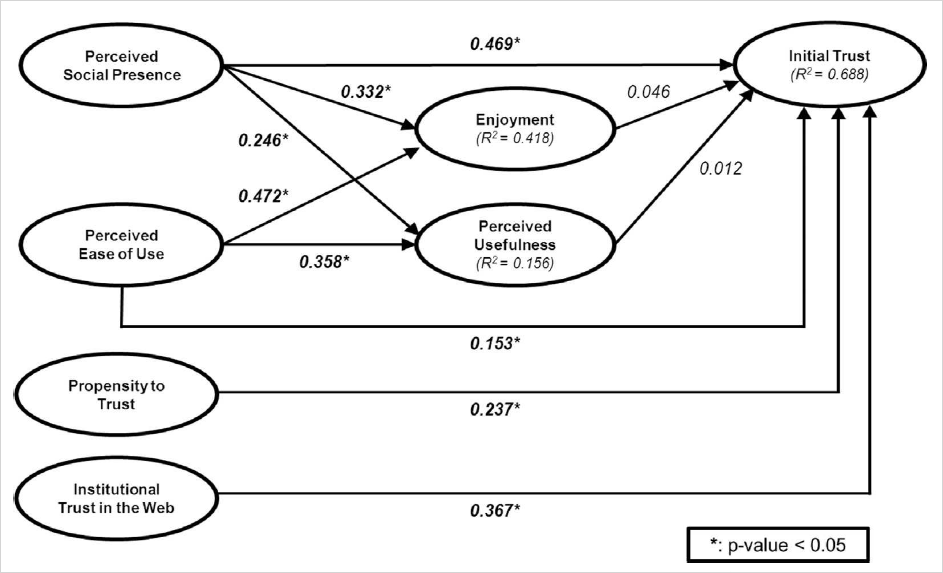Institutional distrust and social presence
Engaging with consumers who have imited trust in institutions, or are predisposed to be distrustful of others is a challenging task for fledgling producers with limited reputation. We argue that the social elements of online stores not only increase the enjoyment and perceived usefulness of a producer, but also increase the initial trust in these producers, because social presence creates a sense of human connection and accountability, which can mitigate skepticism and build relational trust even in the absence of an established reputation. We find support for these hypotheses using a small-scale RCT. [Andrzej Ogonowski, Andrew Montandon, Elsamari Botha & Mignon Reyneke. Journal of Retailing and Consumer Services, 2014]. [Link]

Path model explaining the relationship between perceived social presence on trust, controlling for various consumer attitudes.
